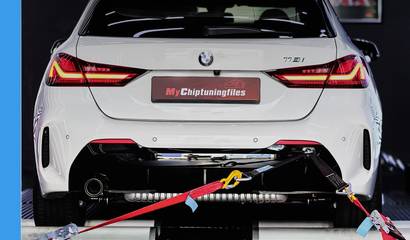Monday 17 November

Okay, let's be honest—cars are awesome, right? They've changed the way we live, work, and travel. But, as much as we love our rides, there’s a downside. The gas-guzzling, pollution-spewing reality of traditional cars is catching up with us. Climate change is a thing, and cars have played a big role in making it worse. So, it’s no surprise that the auto industry is finally waking up to the idea of sustainable driving. In this blog, we're going to see how eco-friendly car technologies are changing the game and what that means for drivers, the planet, and the future.
Why Sustainable Driving is a Big Deal (And Why You Should Care)
Let’s start with the basics: Why should anyone care about sustainable driving? Like, seriously, isn't it easier to just keep driving your regular ol’ gas-powered car and call it a day? I mean, cars are expensive, and change is hard, right?
Well, yeah... but here’s the thing. The transportation sector, especially cars and trucks, is one of the biggest contributors to greenhouse gas emissions. According to some science-y reports I read (and yes, I probably could double-check the numbers), transportation accounts for roughly 29% of all emissions in the U.S. That’s a huge chunk! And it’s not just about the air we breathe. All those emissions contribute to global warming, extreme weather, rising sea levels—basically, the whole package of environmental doom we hear about on the news.
But here's the kicker—our love for cars doesn't have to destroy the planet. With new tech and innovative approaches to car design, we can reduce the environmental impact of driving without sacrificing our wheels. That’s what sustainable driving is all about. So, yeah, it matters.
Electric Cars: The Bright, Quiet Future
Alright, let's jump right into the big one—electric cars. If you’ve even casually glanced at headlines in the last decade, you know that electric vehicles (EVs) are taking over the world, or at least trying to.
How Do Electric Cars Work?
So, how do these things even work? It’s actually way simpler than you might think. Traditional cars have an internal combustion engine (ICE), which burns gasoline to create the energy that makes the car go. Electric cars, on the other hand, don’t need gas at all. Instead, they run on electricity stored in a massive battery. You plug your car into a charging station, and it "fills up" on electricity the same way you charge your phone or laptop.
Under the hood, instead of a bunch of moving parts, you’ve got an electric motor, which is way more efficient and produces zero emissions. That’s right—zero emissions. No more smelly exhaust pipes.
The Rise of Electric Cars: Why Now?
Here’s a fun fact: electric cars aren’t new. In fact, the first electric cars were invented way back in the 1800s, before gas cars even existed. But they kind of fell out of favor because gasoline cars were cheaper and had better range. Fast forward to today, though, and EVs are making a massive comeback. Why? Because the technology has finally caught up.
Companies like Tesla have made electric cars cool again (and fast—some EVs can go from 0 to 60 in less than 3 seconds). Plus, with growing concerns about the environment and new government regulations, the auto industry is being pushed to embrace electric power. It’s like a perfect storm of environmental responsibility, cool tech, and sheer speed. Now, everyone from Ford to Porsche is jumping on the electric bandwagon.
Electric Car Advantages: Beyond the Obvious
Okay, so we know that electric cars are good for the planet because they don’t pollute, but that’s not the only perk.
- Cheaper to Run: Once you get over the sticker shock of buying an EV (which, let’s be real, is still a bit pricey for some models), you'll find that they're cheaper to run in the long term. Electricity is way cheaper than gasoline, and you don’t have to deal with expensive oil changes or a bunch of engine parts that might break down.
- Quiet as a Whisper: EVs are super quiet. Like, eerily quiet. If you've ever driven one, it feels like gliding. No more loud engine roars (unless you’re really into that, in which case, sorry, EVs aren’t for you).
- Performance: Don’t let the quiet fool you—EVs are fast. The way electric motors work gives them instant torque, so when you hit the pedal, you really feel it. It’s a different kind of driving experience, but in a good way.
Also Read: EXPLORE THE CHEAPEST ELECTRIC CARS IN 2024
The Downside: What’s Holding Electric Cars Back?
As much as electric cars are the future, they’re not perfect. One of the biggest issues is range anxiety—that fear of running out of battery power in the middle of nowhere with no charging station in sight. Although newer models can go 300-400 miles on a single charge, that's still not quite the same as pulling into a gas station and refueling in 5 minutes.
Charging time is another problem. Even with fast chargers, you’re looking at a good 30-60 minutes to get a decent charge. Not terrible, but not great either. If you’re in a hurry, it can be a pain.
Also, let’s not forget the environmental cost of manufacturing these massive batteries. Mining for lithium and other materials isn’t exactly eco-friendly, and we still haven’t figured out the best way to recycle old EV batteries. So, while electric cars are better for the environment overall, there’s still room for improvement.
Hybrid Cars: The Best of Both Worlds?
Now, maybe you’re not ready to go fully electric. I get it. The whole "charging station" thing can be intimidating, especially if you live in an area where there aren’t many around. This is where hybrid cars come in.
What Exactly Is a Hybrid Car?
In a nutshell, a hybrid car combines a gasoline engine with an electric motor. These two systems work together to improve fuel efficiency and reduce emissions. There are two main types of hybrids:
- Full Hybrids: These can run on the gasoline engine, the electric motor, or a combination of both. The Toyota Prius is the classic example.
- Plug-In Hybrids: These have a bigger battery that you can charge by plugging it in (just like an EV), but they also have a gasoline engine for backup. So, if the battery runs out, you can still drive on gas.
Also Read: The Shift to Hybrid Vehicles: Exploring the Benefits and Challenges
Why Choose a Hybrid?
Hybrids are great because they offer the best of both worlds. You get the lower emissions and fuel savings of an electric motor, but with the safety net of a gasoline engine. You can drive around town on electric power and switch to gas for long road trips without worrying about finding a charging station. Plus, hybrids are usually cheaper than full electric vehicles.
Also Read: EXPLORING THE BENEFITS OF HYBRID CARS: ALL YOU NEED TO KNOW
Hydrogen-Powered Cars: The Dark Horse of Sustainable Driving
Alright, let’s talk about something a bit more "out there"—hydrogen cars. You’ve probably heard about electric cars and hybrids a million times, but hydrogen? That’s a whole different ball game.
What Are Hydrogen Cars, and How Do They Work?
Hydrogen-powered cars use something called a fuel cell to generate electricity. Basically, they take hydrogen gas, combine it with oxygen from the air, and boom—you’ve got electricity to power an electric motor. The best part? The only byproduct is water vapor. That’s right, no emissions, just water.
Why Hydrogen?
Hydrogen has some serious potential. For one, it’s the most abundant element in the universe, so we’re not gonna run out of it anytime soon. Plus, hydrogen cars have longer ranges than most electric cars, and refueling takes about the same time as filling up a gas tank—just a few minutes.
So, What’s the Catch?
Of course, there’s always a catch. Hydrogen cars are still pretty rare, mostly because we don’t have the infrastructure to support them. There are only a handful of hydrogen fueling stations, mostly in California, so unless you live near one, owning a hydrogen car is pretty impractical right now.
There’s also the issue of producing hydrogen. Most of it is currently made using natural gas, which isn’t exactly eco-friendly. But if we can figure out a way to produce hydrogen from renewable sources (like solar or wind), hydrogen cars could be a serious game-changer in the future.
Sustainable Car Materials: Eco-Friendly Inside and Out
Alright, so we’ve talked a lot about engines, fuel, and emissions, but what about the actual materials used to build cars? It turns out, that’s becoming a big part of the sustainable driving movement too.
Recycled and Biodegradable Materials
Car manufacturers are starting to use more recycled materials in their vehicles, which is pretty cool. For example, some companies are making car seats and interiors out of recycled plastic bottles. Others are experimenting with biodegradable materials, like plant-based plastics, that can break down naturally instead of sitting in a landfill for centuries.
Lightweight Materials for Better Fuel Efficiency
Another trend is the use of lightweight materials like carbon fiber and aluminum. These materials are not only strong but also lighter than traditional steel, which means the car uses less fuel (or battery power) to move. The lighter the car, the less energy it needs to go, which means better fuel efficiency and lower emissions.
Autonomous Cars: The Future of Eco-Friendly Driving?
Here’s where things get really interesting. What if, in the future, we didn’t even have to drive our own cars anymore? What if cars could drive themselves, and in doing so, make driving way more efficient and eco-friendly?
How Autonomous Cars Could Help the Environment
Self-driving cars could optimize driving patterns to be more fuel-efficient. They could reduce traffic jams (which are a huge source of wasted fuel) and even enable car-sharing on a whole new level. Imagine a fleet of autonomous electric cars that pick people up and drop them off on demand, reducing the need for personal car ownership.
Challenges Ahead: The Roadblocks to Sustainable Driving
Of course, it’s not all smooth sailing. While we’ve made a lot of progress in the world of sustainable driving, there are still some big challenges to overcome.
Cost of New Technologies
One of the biggest hurdles is cost. Electric cars, hydrogen cars, and other eco-friendly technologies are still pretty expensive compared to traditional gasoline cars. While prices are coming down, it’s going to take some time before they’re affordable for everyone.
Infrastructure
Then there’s the issue of infrastructure. We need more charging stations for electric cars, more hydrogen fueling stations, and better public transportation options if we’re going to make sustainable driving a reality for everyone.
The Future of Sustainable Driving: Where Are We Headed?
So, what does the future hold for sustainable driving? It’s hard to say for sure, but one thing’s clear: the days of gasoline-powered cars dominating the roads are numbered. Whether it’s electric cars, hydrogen cars, or even autonomous vehicles, we’re moving towards a future where driving is cleaner, greener, and more efficient.
And that’s something we can all get excited about, right?
Maximize Your Auto Shop’s Potential with MyChiptuningfiles
Looking to take your auto shop up a notch? MyChiptuningfiles provides top-tier engine tuning solutions, boosting power, torque, and fuel efficiency—perfect for any auto business, big or small. Our tools, like WinOLS, make upgrading vehicle performance simple and effective.
And it doesn’t stop at tuning! We also offer specialized solutions for DPFs, EGR valves, and AdBlue systems to fix common issues like clogged filters and emissions. Join a global network of over 53,000 partners who trust MyChiptuningfiles to keep their shops competitive and their customers satisfied. Give your shop the edge it deserves!
Final Thoughts: Every Little Bit Helps
At the end of the day, you don’t have to go out and buy a brand-new electric car to make a difference. Even small changes—like driving less, using public transport, or being mindful of your car’s fuel efficiency—can add up over time.
The world of sustainable driving is evolving fast, and it’s up to all of us to do our part in creating a cleaner, greener future for everyone. So, buckle up and get ready for the ride—it’s gonna be one heck of a journey!
news.related_news
Chiptuning tools
Whether you own a car, truck or tractor: we have the best equipment and software for tuning your petrol and diesel engine. With our chiptuning tools it is possible to easily read out the original engine software of your vehicle and upload it to our website. And then it's up to us to provide you with high-quality and customized chip tuning files. Curious about our range of chiptuning tools? Check it out via the button below!









